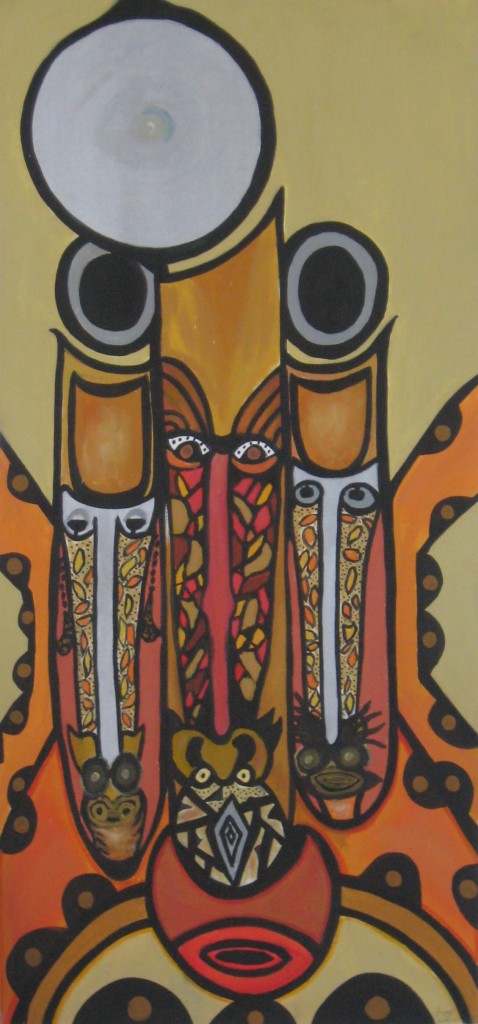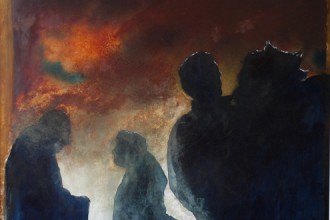Fi Kamau
There is no other figure, in the history of Caribbean poetry, as massive as Kamau Brathwaite. Both his epochal publication of ‘Rights of Passage’  and early scholarly and critical interventions (‘Jazz and the West Indian Novel’; ‘History of the Voice’; ‘Contradictory Omens’) represent the beginning of a serious tradition of innovation and indigenization in Caribbean letters. His publication of ‘Jazz and the West Indian novel’, and later explorations of indigenous musics of the African diaspora began to suture our poetry with our immanent rhythms, establishing them as a basis upon which we could build a unique aesthetic. Both through his own writings and his work with the Caribbean Artists Movement, Kamau was also instrumental in the development of a tradition of criticism that was equipping itself slowly with the apparatus that would allow it to truly overstand the depths and the heights of what was happening in the work of Caribbean writers of that period. And for what was inevitably to come.
Representing, as he has continuously done, an alter-native tradition in Caribbean letters, his journey has not been easy. Detractors have taken on cosmic proportions. The dark trinity of calamities that befell Kamau in the 80s threatened quite early his progress, his direction and the revolution he had undertaken in the name of the Caribbean. The early crossing-over of his wife Doris Wellcome-Brathwaite (1986), the destruction of his Caribbean ‘Library of Alexandria’ in Irish Town (1988) and his encounter with the criminal underbelly of Jamaican society where his house was broken into, a gun’s nozzle placed at the base of his skull (1990) and a cosmic bullet fired that has been travelling ever since. Brathwaite aptly refers to this period as the Time of Salt.
Inevitably, he has had to endure misrepresentation and misinterpretation. He has been surrounded at times by gainsayers. He has been lumped with what persons like to call ‘political’ black responses to degradation, accusations that come many times from those who still have not taken the time to read and experience the work, the nuance and ultimately the compassion in Kamau’s voice:
“I go to great lengths in ‘The dev. of creo society & CO’ to demonstrate, we have to begin the great work of plantation psychocultural reconstruction by first of all knowing as clearly & as carefully as we can, where we each of us COMING from & the nature & complexity— often complicity— of the BROKEN dispossessed sometimes alienated GROUND on which we at ‘first’ find ourselves …â€
“I also began to recognise that these broken islands were the sunken tops of a mountain range that had been there a million years before. That in addition to the death of the Amer-Indians I was also witnessing the echo of an earlier catastrophe. That the islands had been part of a mainland. That we once had been whole- and that what we now had between each other was holes. But that whole and hole, those two types of things should somehow come together. That was a challenge I knew I had to be able to span. To find the rhythm, the metaphor, the image that would unite ‘whole’ and ‘hole’ that would create a sweep and an ancestry out of the broken cordilleras.â€
On Kamau’s 85th eart’day, I think we who celebrate him, must re/visit him, must be able to defend him where necessary from the gently feathered, sharp-beaked status crows, and we must share him. We must re/visit that original vision that has brought us to this point in Caribbean Literature, where writers feel a greater freedom in writing their voice, their rhythms, themselves.
Lewee raise di bredda, di fadder, di gran-fadder up up up and let his word and work come ah! showering heart down pon we again.
And again. Â Like rain.
Vladimir Lucien is a St. Lucian writer and critic, whose debut collection of poetry, ‘Sounding Ground’ (Peepal Tree Press, 2014) won the prestigious 2015 OCM Bocas Prize for Poetry and the overall Bocas Literary Prize. He is co-editor of Sent Lisi: Poems and Art of Saint Lucia (2014).






[…] “With this heightened sensitivity to the Caribbean space and spirit, the ethos of Plantation, Kamau exists as a kind of sage, but in a society that still has not been able to consistently decide what to do with him, he can be more accurately likened to a figure in Roman law and society, known as the homo sacer, a status that may fall upon oath breakers as well as persons who threatened the hegemony in that society.” – Vladimir Lucien writing on Kamau Braithwaite […]